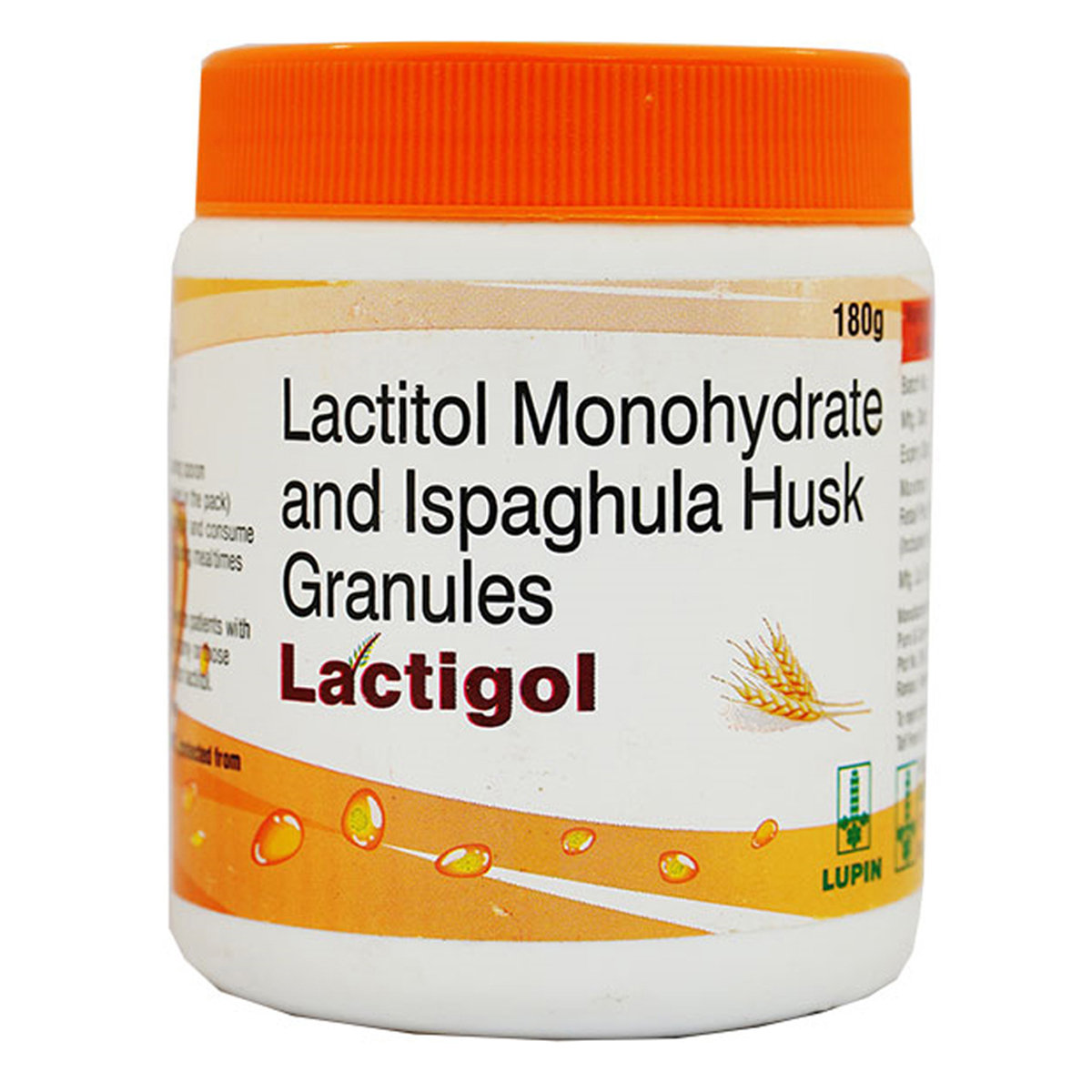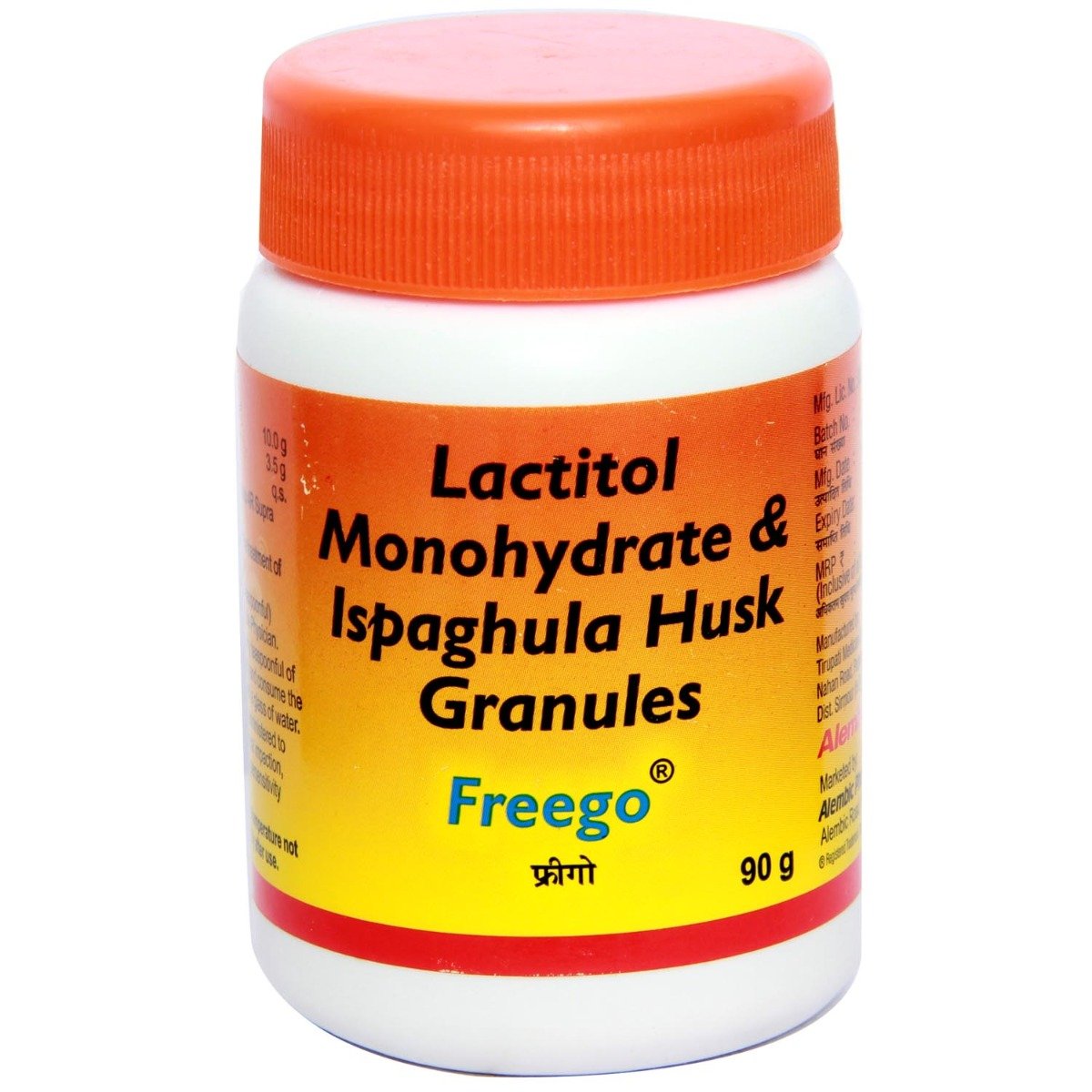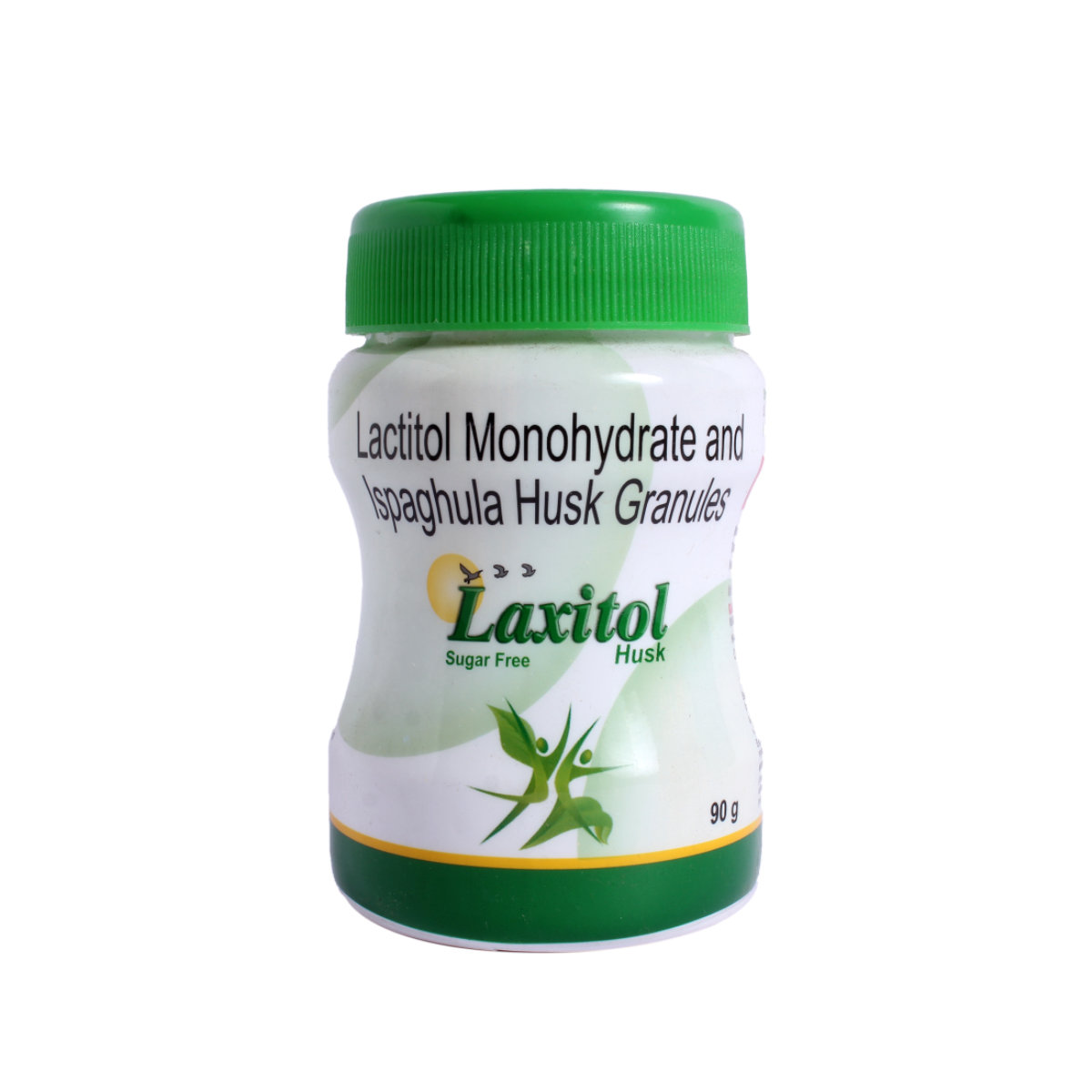Clearitol Granules 90 gm
MRP ₹155
(Inclusive of all Taxes)
₹23.3 Cashback (15%)
Provide Delivery Location
Online payment accepted
 Prescription drug
Prescription drugWhats That
Composition :
Manufacturer/Marketer :
Consume Type :
Expires on or after :
Return Policy :
About Clearitol Granules
Clearitol Granules belongs to the group of medicines called laxatives used to treat constipation. Constipation refers to infrequent bowel movements in which the stools are often dry, painful, and hard to pass.
Clearitol Granules is a combination of two drugs; Ispaghula husk and Lactitol. Ispaghula husk is a bulk-forming laxative that works by increasing the amount of water in the stool, making the stool softer and easier to pass. It can absorb 14 times more water than its weight. Therefore, drink plenty of water while taking Ispaghula. On the other hand, Lactitol is a disaccharide sugar. It works by breaking down into low-molecular-weight organic acids in the colon, which increases the osmotic pressure. This causes an increase in water content in stools, and stool volume, thereby makes the stool softer and easier to pass and provides relief from constipation.
Take Clearitol Granules as prescribed by your doctor. Try to take the Clearitol Granules at a fixed time for the best results. You are advised to take Clearitol Granules for as long as your doctor has prescribed it for you depending on your medical conditions. In some cases, you may experience certain common side-effects such as abdominal distension, cramps, and flatulence (gas). Most of these side-effects do not require medical attention and will resolve gradually over time. However, you are advised to talk to your doctor if you experience these side-effects persistently.
To treat your condition effectually, continue taking Clearitol Granules for as long as your doctor has prescribed. Drink plenty of fluids (at least 6-8 glasses) while taking Clearitol Granules. Consult your doctor before taking Clearitol Granules if you are pregnant or breastfeeding; your doctor will prescribe you Clearitol Granules only if the benefits outweigh the risks. Inform your doctor if there is no bowel movement or if you find rectal bleeding after taking Clearitol Granules. Do not take Clearitol Granules for more than a week as it might cause dependency on Clearitol Granules for a bowel movement.
Uses of Clearitol Granules
Directions for Use
Key Benefits
Clearitol Granules belongs to a group of medicines known as laxatives used to treat constipation. Clearitol Granules is a combination of two drugs; Ispaghula and Lactitol. Ispaghula is a bulk-forming laxative that works by increasing the amount of water in the stool, and stool volume making the stool softer and easier to pass. It can absorb 14 times more water than its weight. Therefore, drink plenty of water while taking Ispaghula husk. On the other hand, Lactitol is a disaccharide sugar. It works by breaking down into low-molecular-weight organic acids in the colon, which increases the osmotic pressure. This causes an increase in water content in stools, and stool volume, thereby makes the stool softer and easier to pass and provides relief from constipation.
Storage
Drug Warnings
Do not take Clearitol Granules if you are allergic to any of its contents. Consult your doctor before taking Clearitol Granules if you are pregnant or breastfeeding; your doctor will prescribe you Clearitol Granules only if the benefits outweigh the risks. Do not take Clearitol Granules in case of ileostomy or colostomy. Regularly monitor serum electrolytes, blood lactose and blood glucose levels while taking Clearitol Granules. Talk to your doctor if there is no bowel movement or if you find rectal bleeding after taking Clearitol Granules. Do not take Clearitol Granules if you have galactosaemia (galactose indigestion disorder), intestinal obstruction, unexplained abdominal pain or bleeding. Inform your doctor if you have diabetes, or if you have to undergo a colonoscopy. Do not take Clearitol Granules for more than a week as it may cause dependency on Clearitol Granules for a bowel movement.
Drug-Drug Interactions
Drug-Drug Interactions
Login/Sign Up
Drug-Food Interactions
Drug-Food Interactions
Login/Sign Up
Diet & Lifestyle Advise
- Try maintaining a balanced diet that includes fresh fruits and vegetables.
- Stay hydrated, drink enough water and fluids.
- Exercise regularly, and stay fit.
- Get enough sleep.
- Trying to make time to empty your bowels whenever the body tells you to.
- Eat food rich in fibre such as whole-wheat bread, oatmeal, flaxseed, nuts, beans, lentils, fruits (berries, apples, oranges, bananas, pears, figs) and vegetables (broccoli, spinach, sweet potatoes, avocados).
Side Effects of Clearitol Granules
- Bloating
- Stomach cramp
- Flatulence (gas)
Habit Forming
Therapeutic Class
All Substitutes & Brand Comparisons
RX
Out of StockEzecor-LX Granules 90 gm
Ordain Health Care Global Pvt Ltd
₹149
(₹1.49/ 1gm)
3% CHEAPERRX
Samfibre Granules 180 gm
Samarth Life Sciences Pvt Ltd
₹359
(₹1.8/ 1gm)
16% COSTLIERRX
Softool Sugar Free Granules 180 gm
East India Pharmaceutical Works Ltd
₹398
(₹1.99/ 1gm)
28% COSTLIER
Author Details
We provide you with authentic, trustworthy and relevant information
Drug-Diseases Interactions
Drug-Diseases Interactions
Login/Sign Up
FAQs
Clearitol Granules contains Ispaghula and Lactitol. Ispaghula works by absorbing water and makes the stool soft and bulky and easier to pass. Lactitol works by breaking down into low-molecular-weight organic acids in the colon, which increases the osmotic pressure. This causes an increase in water content in stools, and stool volume, thereby makes the stool softer and easier to pass and provides relief from constipation.
Diarrhoea might occur if Clearitol Granules is taken in larger doses. Drink lots of fluids and eat food rich in fibre if you experience diarrhoea. If you find blood in stools (tarry stools) or if you experience excess diarrhoea consult your doctor. Do not take anti-diarrheal medicine on your own.
Do not take Clearitol Granules for more than a week as it might lead to dependency on Clearitol Granules for a bowel movement. Taking Clearitol Granules for longer durations might also cause dehydration, imbalance of fluids and salts in the body which can affect the tightness of muscles in the intestine. If your bowel movement is irregular even after taking Clearitol Granules for a week, consult your doctor.
Clearitol Granules can be given to children if prescribed by the doctor. The dose and duration depend upon the child’s age and body weight.
Constipation happens when the normal actions of muscle in the large intestine get slowed down, which means the waste part (stools) did not get easily eliminated from the body.
Drug-Drug Interactions Checker List
- NEOMYCIN
- TETRACYCLINE
- DIGITALIS
- CARBENOXOLONE
- AMPHOTERICIN B
Special Advise
Maintain adequate fluid intake while taking Clearitol Granules.
Disease/Condition Glossary
Constipation: It refers to infrequent bowel movements. The stools are often dry, painful and hard to pass. Constipation is a condition in which the person has fewer than three bowel movements in a week. However, bowel patterns may vary from person to person. Symptoms include bloating, abdominal pain, and feeling as if the bowel movement is incomplete. Constipation occurs when the normal muscle contractions in the large intestine slow down, which causes the incomplete elimination of the bowel from the body. Constipation could be associated with a sudden change of diet, a diet with less fibre, not drinking enough liquids, and lack of exercise.

Have a query?
Alcohol
Safe if prescribed
The interaction of alcohol with Clearitol Granules is unknown. Please consult a doctor before consuming alcohol while using Clearitol Granules.
Pregnancy
Consult your doctor
Please consult your doctor before taking Clearitol Granules if you are pregnant, your doctor will prescribe you Clearitol Granules if the benefits outweigh the risks.
Breast Feeding
Consult your doctor
It is not known whether Clearitol Granules passes into the mother’s milk. Please consult your doctor before taking Clearitol Granules if you are breastfeeding; your doctor will prescribe you Clearitol Granules if the benefits outweigh the risks.
Driving
Safe if prescribed
Clearitol Granules has negligible influence on your ability to drive.
Liver
Consult your doctor
Clearitol Granules is safe to use if prescribed by the doctor. Please consult your doctor if you have a liver impairment or any concerns regarding this.
Kidney
Consult your doctor
Clearitol Granules is safe to use if prescribed by the doctor. Please consult your doctor if you have kidney impairment or any concerns regarding this.
Children
Safe if prescribed
Clearitol Granules should not be given to children below 12 years of age as the safety and effectiveness were not established.













